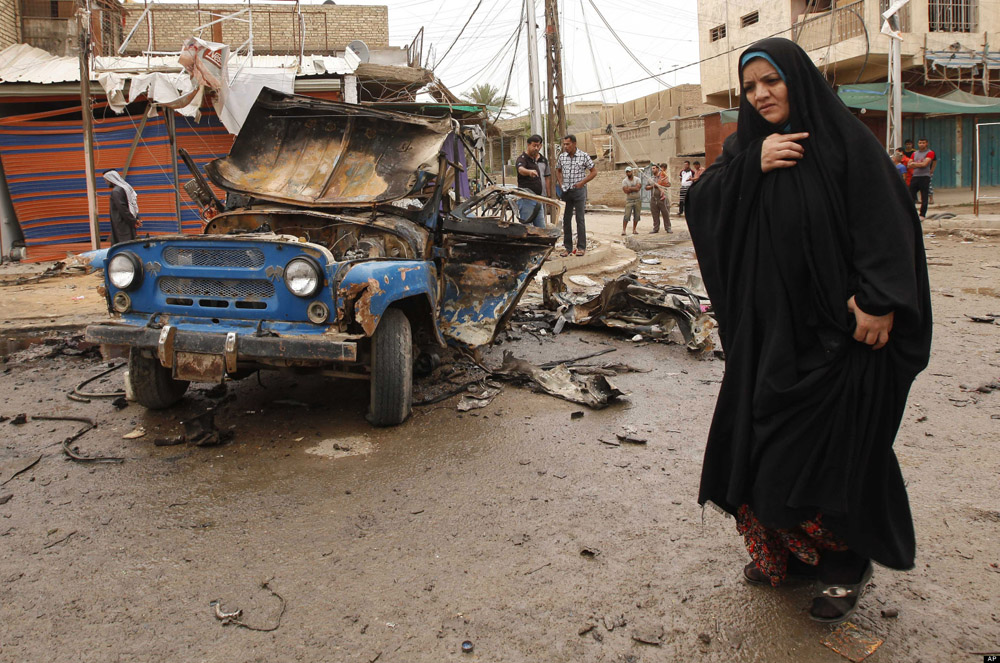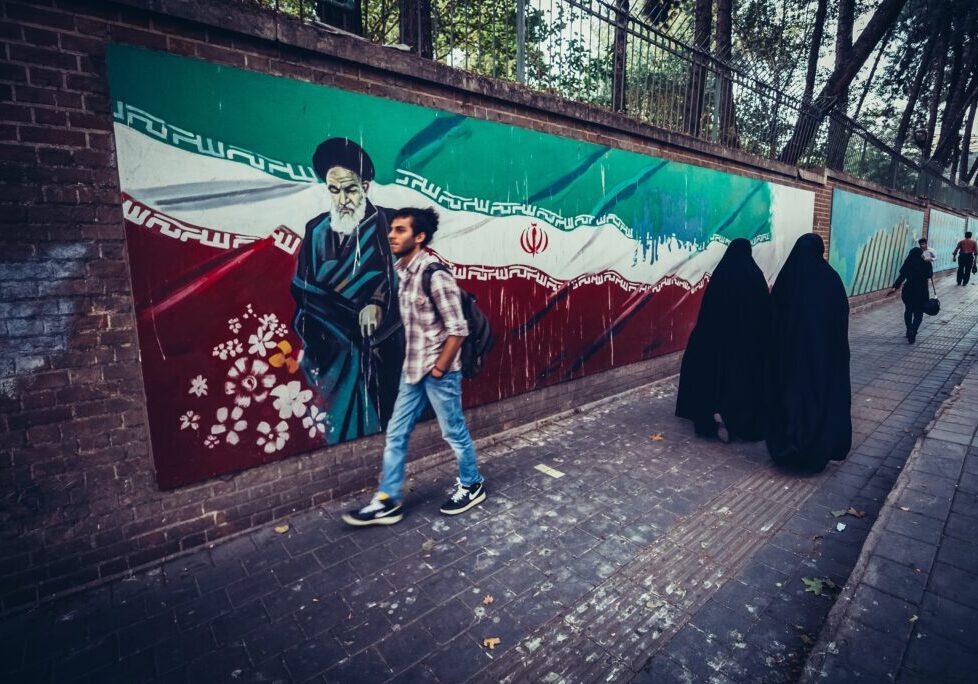Australia/Israel Review
Battle of the Islamists
Jun 26, 2013 | Barry Rubin

Barry Rubin
There is a passionate, but somewhat academic debate, over the following issue: Which is the greater threat, the Sunni Muslim Islamists (Egypt, Tunisia, Gaza Strip and perhaps soon to be Syria) or the Shi’ite Muslim Islamists (Iran, Lebanon, and at the moment still, Syria)?
I would say the answer would be the Iran-led Shi’ite bloc. But two reservations: the margin isn’t that big and it also depends on the specific place and situation.
To begin with, Iran is still the greatest strategic threat in the region. It is moving as fast as it can toward nuclear weapons and it is still the main sponsor of terrorism. At the moment, it is still, too, the most likely state that would initiate an anti-Western war, though that possibility is smaller than often believed. It has lots of money.
What has gone largely unnoticed is that it is almost the middle of 2013 and the Obama Administration has barely begun negotiations with Iran that will probably drag on without success for a year or more.
Iran is also the main backer of Islamist revolution in Bahrain (where it has failed), Lebanon (where its Hezbollah clients are the strongest force) and Syria (where its regime ally is in serious trouble).
One final point is that Teheran is having some success in drawing the Iraqi (Shi’ite) Government into its orbit. Baghdad is certainly cooperating with Iran on defending the Syrian regime, though one should not exaggerate how much Iraq is in Iran’s pocket. At any rate, nobody would want the Iraqi regime to be overthrown by the al-Qaeda terrorist opposition.
So a strong case can be made that Iran is the greatest threat in the region.
On the other hand, however, a Great Wall of Sunnism has been built to prevent the extension of Iranian influence – except for Lebanon. The Sunni bloc contains few Shi’ite Muslims. The Muslim Brotherhood, the even more radical Salafists, and other Sunni Muslims (Saudi Arabia, Bahrain, and the United Arab Emirates, for example) have said that the Shi’ites are a worse threat than Israel.
Perhaps the fear of Iran provides some common cause with the West. But this is also a scary proposition since proponents of the promotion of Sunni Islamism (Egypt, Tunisia, Syria, and even Turkey) could use this point as an excuse. Perhaps America could be said to be building a united front against Iran, but at what price? Turning over much of the Arab world to repressive, anti-American, and antisemitic Sunni Islamism as Christians flee?
There is also another weakness of Sunni Islamism, however, that also makes it seem relatively less threatening. In contrast to Iran, the Sunni Islamists do not have a wealthy patron comparable to Iran. They can depend on money from Qatar and to some extent from Libya but they have fewer resources. Sometimes the Saudis will help Sunni Islamists, but only if they tone down their warlike and anti-Western actions. There is no big banker for Sunni Islamist destabilisation of the Middle East.
Equally, they do not have a reliable source of arms, in contrast to the Shi’ites who have Iran and also at times Russia. True, in Syria the Sunni rebels have US backing to get weaponry and arms from Libya and elsewhere paid for by Saudi Arabia and Qatar – and now more directly from the US. Yet Syria is an exceptional case. The Saudis are not going to finance the Muslim Brotherhood and its ambitions. Bahrain has declared Shi’ite Hezbollah to be a terrorist group even while the European Union refuses to do so.
So arguably one could say that the Shi’ite Islamists and Iran are a bigger danger. But a second danger is a US or Western policy to promote Sunni Islamism as a way to counter the Shi’ites, a strategy that has intensified regional dangers and the suffering of Arab peoples. Then, too, there’s the fact that al-Qaeda is a Sunni Islamist organisation, and the al-Qaeda forces are getting stronger in Syria.
One would have to be very foolish to want to see Sunni Islamism make further gains, to overthrow the monarchies in Morocco, Saudi Arabia, Jordan, Oman, the United Arab Emirates, Qatar, or Bahrain, as well as the Algerian regime. One would also have to be foolish to want to see Muslim Brotherhood regimes succeed in Egypt, Tunisia, the Gaza Strip and Syria.
What we are seeing, however, is that Islamism is becoming entangled at present with the power it has gained, especially in Egypt. The country is innately in economic difficulties and these are being intensified by Muslim Brotherhood misrule. Rather than raise their countries to the peak of military-economic efficiency, the Islamist regimes are wrecking them.
But there are some very significant wild cards in the deck:
• If Sunni Islamist regimes in Egypt and Syria face significant problems with instability and economics, they might adopt the time-honoured, traditional tactic of Arab dictatorships of stirring up foreign quarrels and promoting anti-Americanism. This could unleash future Arab-Israeli wars.
• Sunni Islamist regimes in Egypt, the Gaza Strip and probably Syria would give extremely radical Salafist forces a free hand in attacking Christians, moderates, women’s rights, foreign embassies, and possibly Israel. Human rights in these countries – if anybody in the West cares about that – are going to suffer severe hits.
• Hamas will probably attack Israel in future, perhaps with at least some Egyptian backing though the Egyptian regime is now trying to restrain Hamas in order to consolidate rule at home and get Western money.
• Al-Qaeda is gaining strength in Syria and for the first time its possible takeover cannot be ruled out, at least in alliance with other Salafist groups.
• The stronger the Sunni Islamists are, the more uncooperative the Palestinian Authority (PA) will be with attempts at a “peace process”. It is possible that the PA would face a considerable challenge from Hamas on the West Bank while forces within Fatah, the PA’s ruling party, might form alliances with Hamas. Israel should be able to keep the PA in power – a situation wrought with irony – but its stability could crumble.
In short, while one can make the case for Shi’ite Islamism being the more dangerous – at least as long as Iran might get nuclear weapons – one must very carefully examine the implications of that judgment in every specific case. Promoting Sunni Islam is no panacea but rather substitutes longer-term for shorter-term threats.
Professor Barry Rubin is Director of the Global Research in International Affairs (GLORIA) Centre and Editor of the Middle East Review of International Affairs (MERIA) Journal. His latest books include Israel: An Introduction (Yale University Press); The Israel-Arab Reader (seventh edition), The Long War for Freedom: The Arab Struggle for Democracy in the Middle East (Wiley), and The Truth About Syria (Palgrave-Macmillan). To read and subscribe to MERIA, GLORIA articles, or to order books, go to www.gloria-center.org. © Barry Rubin, reprinted by permission, all rights reserved.
Tags: Middle East






